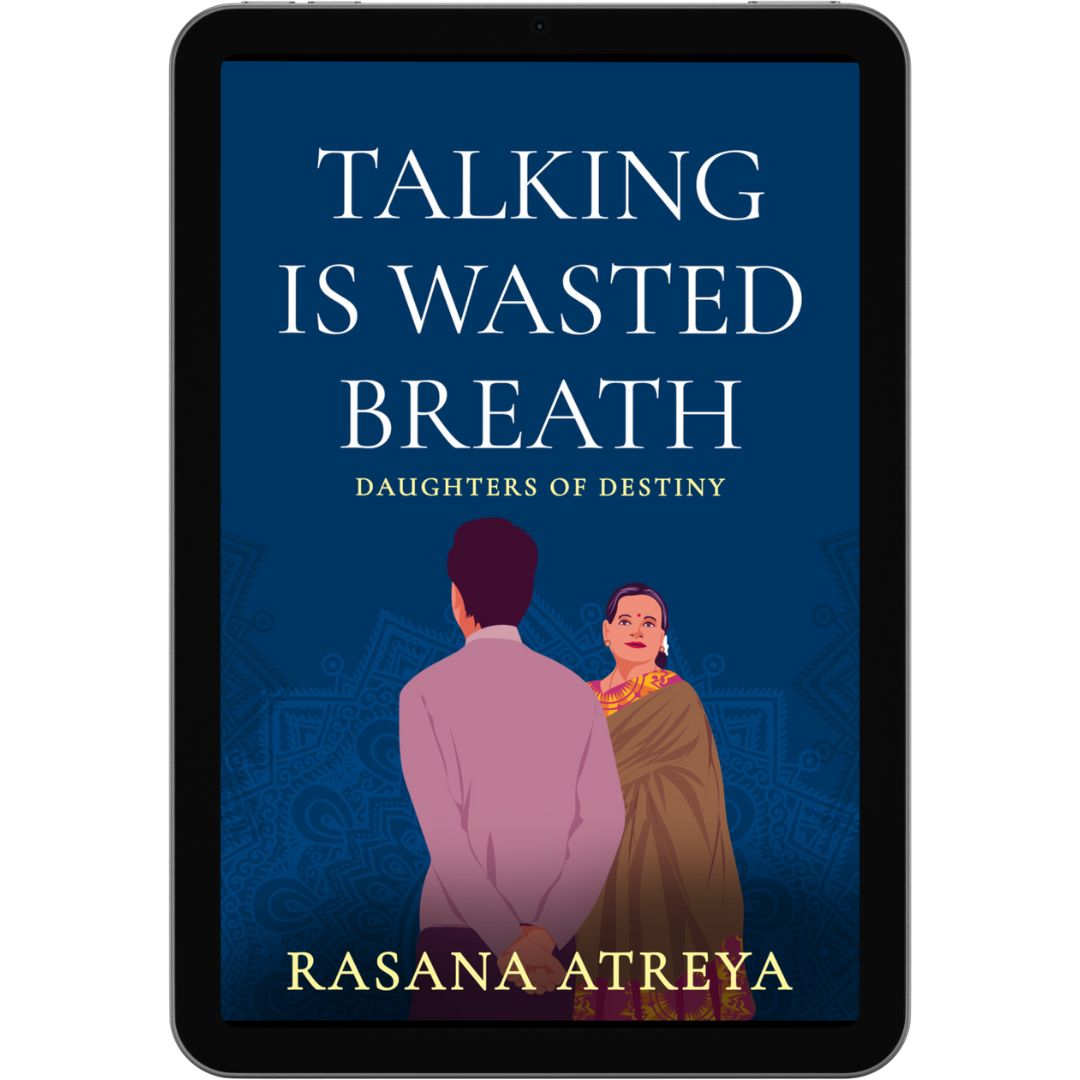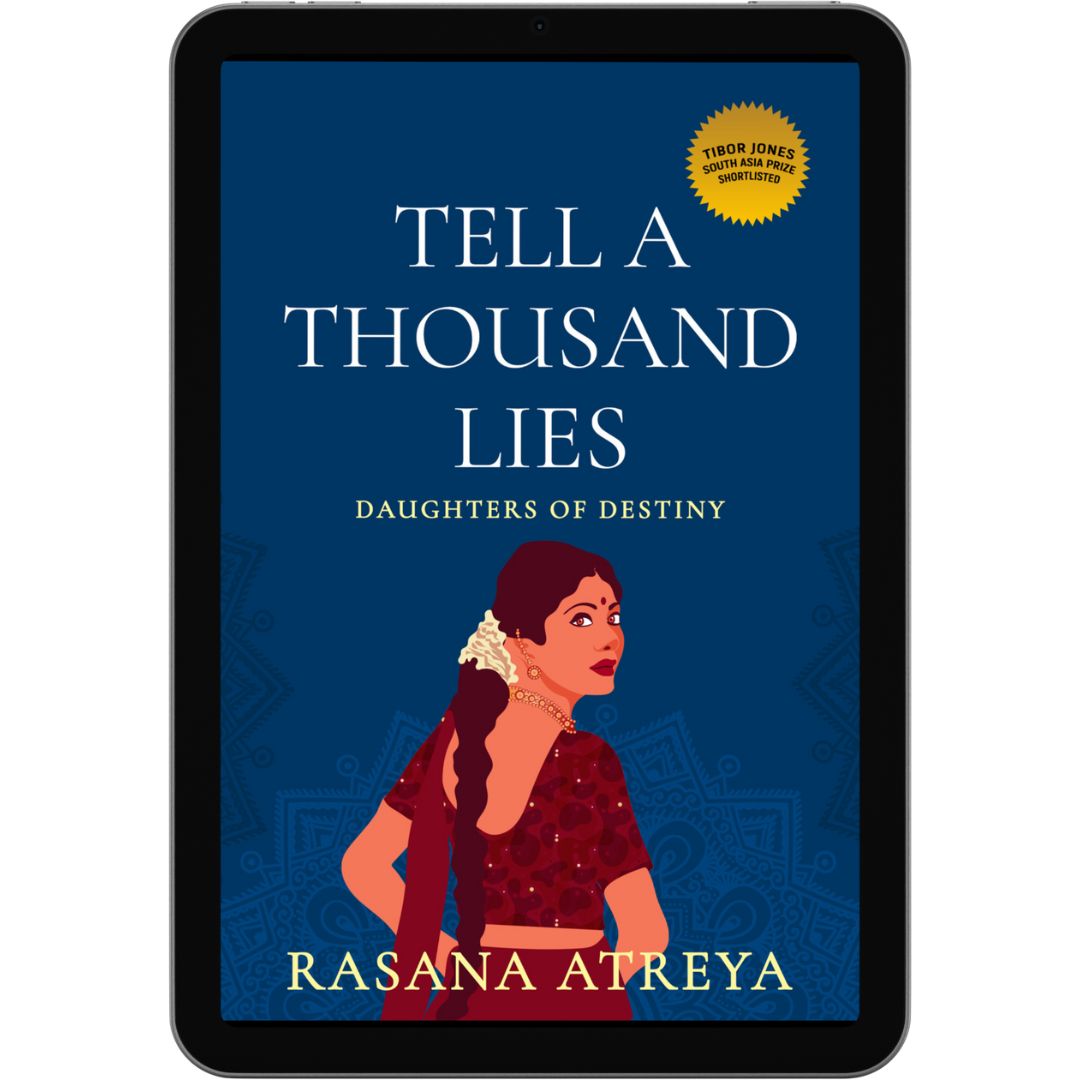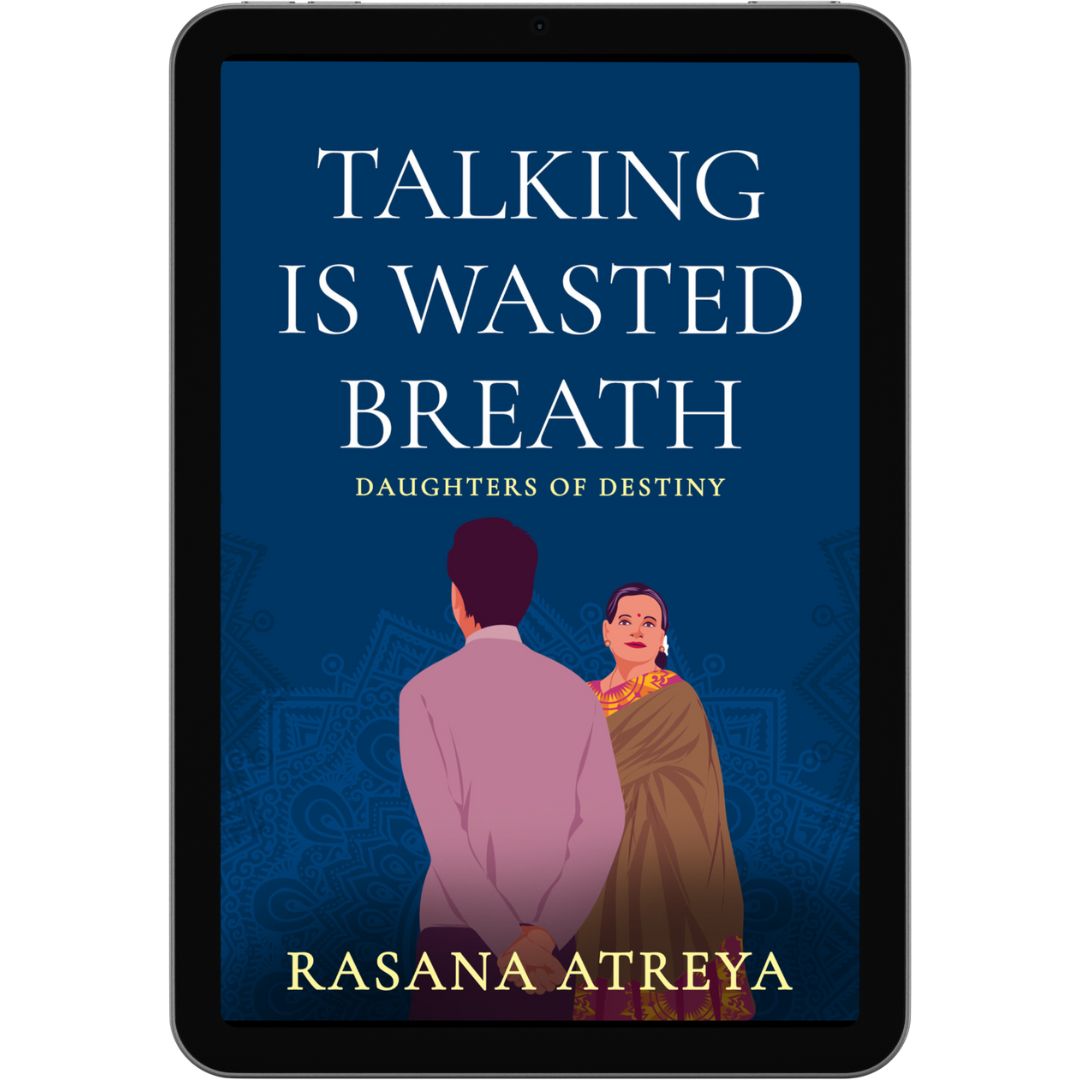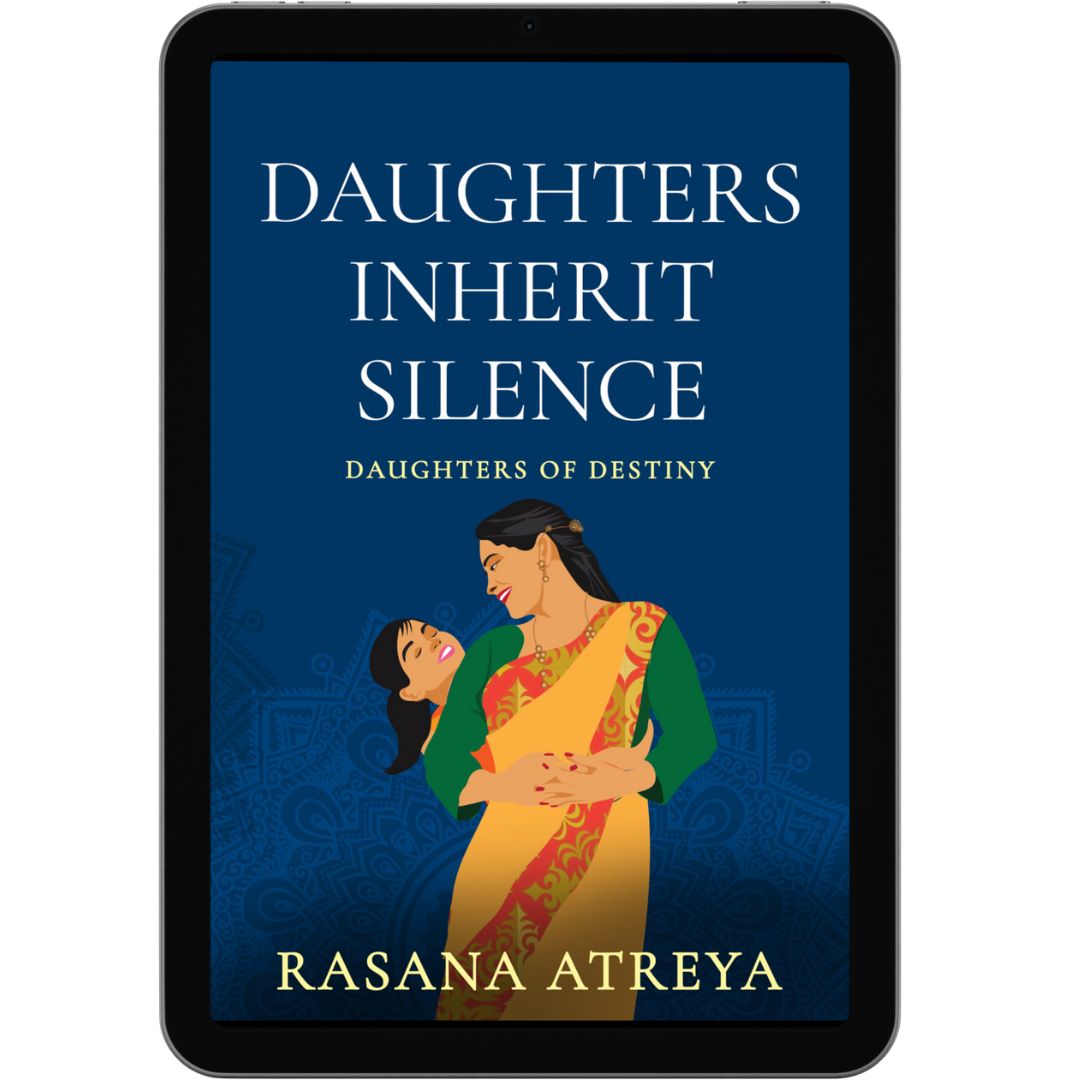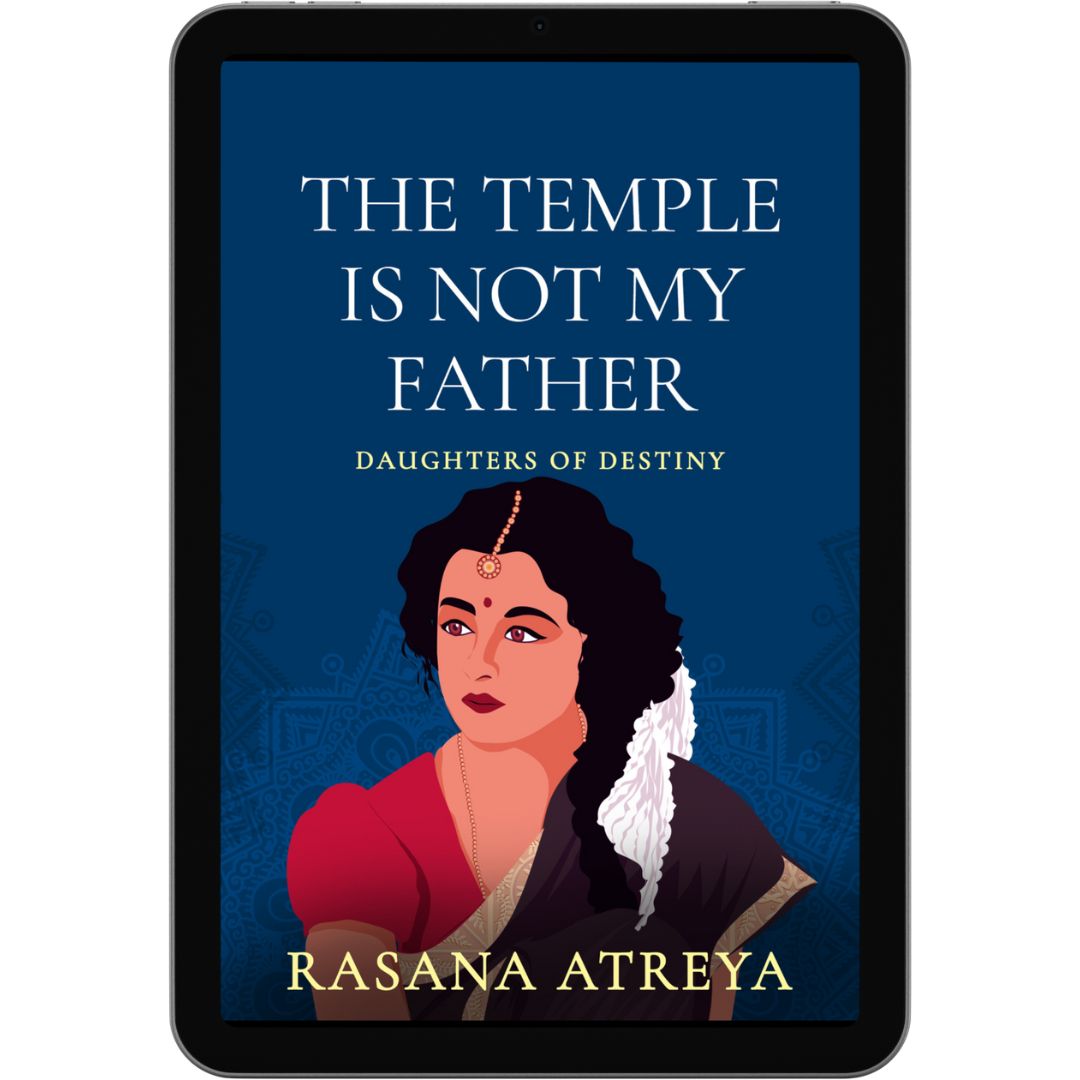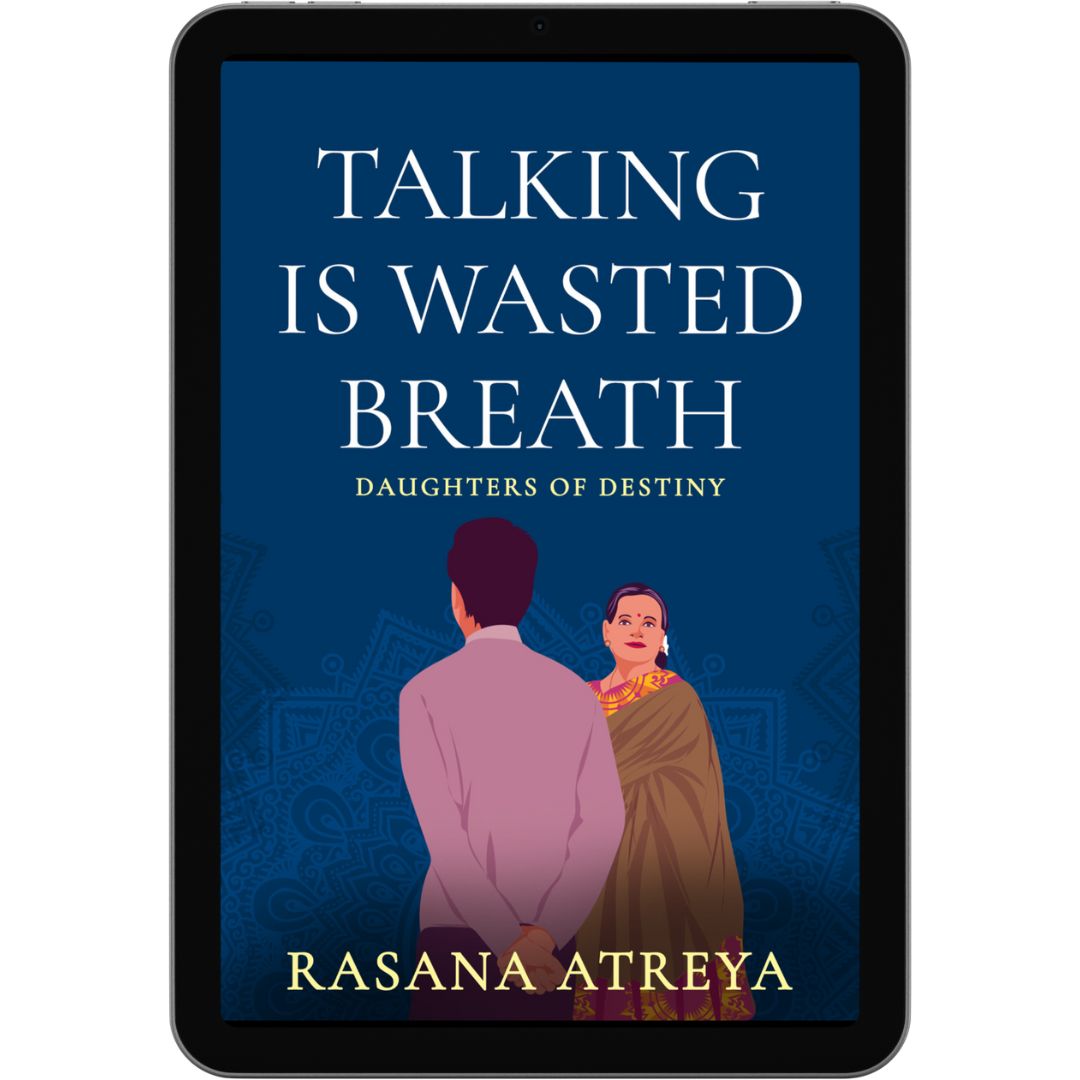Chapter 1
Madhav’s Residence, Hyderabad
“Where are those people, anyway?” Madhav’s father put his wrist to his ear, checking if his watch was still working, and resumed his pacing.
A rotund man of nesting-doll proportions, he favoured flowing silk kurtas and loose cotton pyjamas for special occasions—both of which routinely struggled for movement at the neck and the waist. This was an additional reason for today’s discomfort.
“They must be caught in traffic,” Madhav mumbled. What could he say? Rao garu was running so late, he was embarrassing even the Indian Standard Time.
“Why is he coming, anyway?”
Madhav didn’t know how to answer that. If he told his father that Rao garu was coming over to seek a wedding alliance for his daughter with Madhav, he knew what Nanna would say, and rightfully so: Did your brain eat grass and die?
Rao garu was well known in the twin villages where Madhav’s grandparents lived, and it wasn’t for his agreeable demeanour. It was universally accepted that the man was undeniably loathsome.
His only daughter, though. Shyamala floated through Madhav’s mind in her pale-yellow, diaphanous sari. Her long braid coiling around her waist as she gracefully walked across the room. He sighed.
Given a chance, his mother would lay out her well-worn line of arguments in favour of an arranged marriage: Did we not marry the person our families picked out for us? Didn’t your friends? Aren’t we all happy?
What would be left unsaid: Did we not use up our savings to pay for your elite education? For your sister’s? And for her very expensive wedding?
What would be left further unsaid: Don’t we deserve a healthy return on our investment in our children? (Not that any morally upright family would ever demand dowry. Oh no. That scourge was a pox on the face of Indian society!)
“Uff!” Amma said. “Where are they?”
If Nanna was a Russian nesting doll, Amma was an elegant ballerina in tasteful saris.
Amma’s alliance for Nanna was finalised after a single meeting between the fathers.
Her father was aristocratic in bearing.
His father was tall and smart-looking.
She was beauteous.
He was short, squat and—underwhelming.
Nanna had first met Amma at their wedding. Rumour had it, this was the reason a perpetually apologetic Nanna could deny his wife nothing.
“Can’t that man afford a mobile phone?” Amma said, now. “He’s certainly made enough money off the families of his three daughters-in-law.”
Rao garu had used the gifts from the families of his three daughters-in-law—not dowry; everyone knew that demanding dowry was punishable by jail time—and built himself a four-storey house right across from Madhav’s grandparents.
When Rao garu caught a whiff of Madhav’s openly anti-dowry stance, he had latched on to the alliance like grease on kitchen exhaust.
He tracked Madhav down and informed the younger man of his intention to approach Madhav’s family with an alliance.
Madhav had mumbled his acceptance to Rao garu for one important reason. Well, two. The first was that Shyamala was the complete opposite of the girl Amma would pick out for him. Actually, if he were honest, that was the only reason that counted.
And so continued Nanna’s pacing, Amma’s commentary, and Madhav’s glumness.
The doorbell rang a full ninety-five minutes later.
“Welcome, welcome,” Nanna said, palms joined in greeting, his face showing anything but.
“Hello, hello, hello,” Rao garu said, grinning.
If there was a man less undeserving of the respectful “garu” that tacked onto an elder’s name, Madhav was yet to find him.
“We’re very, very late. I’m so sorry,” Kala aunty said. “First, the driver didn’t show up, then my husband forgot the directions, so we had to go back. On top of that, the tire got punctured. Then we got caught in a traffic jam.”
“My wife was after me,” Rao garu said. “Phone them, phone them. Being a proper nuisance, she was.” He shook his head at Madhav’s father. “These women, such little understanding they have, no? Always wanting us men to waste money on frivolous things. Long distance charges, indeed.”
“Not to worry,” Nanna said. If his smile were any tighter, it would split his red face in two. “Please come in.”
To the maid, Amma said, “Water for the guests.”
To the guests, Amma said, “Please.” She pointed at the sofa.
Kala aunty gave her husband an uncertain look before perching on the very edge of the sofa.
Rao garu headed for the rocking chair placed by the side.
Amma raised a hand in dismay. “Not that—”
Before Amma could finish her sentence, Rao garu had thrown aside the placard which, had he taken the time to read, would have informed him that the chair—once belonging to Amma’s beloved mother—was now set aside as a memorial.
The rocking chair, a shrine for nineteen years, now ensconced the skinny behind of Rao garu.
Amma’s lips tightened in a thin white line.
“Some coffee, perhaps?” Madhav said a little desperately. Which groom ever took over hosting duties at his own wedding-alliance meeting? “Or can we get you tea?”
“Please don’t trouble yourself.” Kala aunty’s voice was barely audible.
“Don’t speak for me,” Rao garu said, bouncing in the rocker.
Amma blanched.
Using an incongruously pudgy middle finger, Rao garu pushed his oversized spectacles up his nose. His forehead was luminous with—and smelling of—Jasmine Scented Parachute Coconut Hair Oil. “Something hot and spicy would be good. So cold it is, no?”
Kala aunty was terribly embarrassed. “Yemandi, Yemandi!” she said, trying to attract her husband’s attention.
But Rao garu’s head was jerking around the room in the quick motions of an urban rodent.
To Madhav’s father, he said, “What is your take home pay, sir? And Madhav’s? Must be quite a packet. Such a nice place you have.”
“Ye-man-di!” Distress caused Kala aunty’s face to turn a shade of colour unfamiliar to Madhav. “Please do excuse us.”
“That’s okay,” Amma said, though, clearly, it wasn’t.
“What can I get for you?”
“Mirchi bajji goes well with the weather, don’t you think?” Rao garu said. “Freshly fried snacks on a wet afternoon.”
Creak, creak went the rocker.
“And coffee, though your tepid concoctions could never stand up to our strong village brew.”
Kala aunty flushed an unbecoming red. She declined food and beverage.
“So,” Rao garu said, “you have an educated, well-earning son who doesn’t want dowry.” He cocked his head at Madhav. “Right?”
Madhav hesitated an instant before nodding. Dowry wasn’t the issue here; the father of the bride was.
Amma frowned. “Could I ask you the reason for your visit?”
“We’re here to make Madhav our son-in-law. Why else we will come?”
Amma and Nanna exchanged looks of disbelief.
Madhav cursed himself for not forewarning his parents.
“My girl is not the best in the district, but still. Good enough for your son. She’ll not look short for your Madhav. Very good cook. What else one can ask for?”
“Mentally balanced family?” Amma said under her breath, but not so low that it wasn’t audible.
“So true,” Nanna said.
“We’ll finalise the deal?” Rao garu asked.
Madhav shot his mother a glance.
Amma sat stone-faced.
“Heh! Heh!” Rao garu chortled, beckoning the maid as she entered with bajjis—freshly defrosted and microwaved—and coffee.
After being cajoled by Madhav, Kala aunty took the coffee, holding the cup in a death grip. She refused the bajjis.
The only sounds over the next few minutes were those of Rao garu chomping on the snacks. Having demolished them, he proceeded to down the coffee in noisy slurps, then sat back with a sigh. “So, it’s settled,” he grunted, wiping his coffee moustache with the back of his hand. “We can finish off the nischitartham right here, you know. Why call more family for simple engagement stuff? Waste of money, if you ask me. Got clothes for the three of you right here. ‘Buy two, get one free,’ it was.”
Kala aunty’s face reddened in embarrassment.
Nanna looked like he was ready to explode.
Amma’s face, on the other hand, was devoid of expression.
“Uh…” Kala aunty got to her feet. “We should be going.”
“But why?” Rao garu looked bewildered. “We’re here to take home the boy.”
“You’re forgetting,” Nanna said tightly, “that taking home the girl is the prerogative of the groom’s family.”
“So used to talking like the father of the groom, you know. Heh! Heh!” His chest puffed up like freshly fried poori. “Got three of my own.”
“We should go.” Giving Amma an apologetic look, Kala aunty caught hold of her husband’s arm and dragged him to the door.
Rao garu bent down and snagged a spicy bajji on his way out.
***
Nanna exploded. “I can’t believe that man!”
“And he wants to palm off his obnoxious daughter on us?” Amma dragged the free end of her sari and shoved it in at the waist.
“It’s hardly Shyamala’s fault she’s saddled with such a father,” Madhav protested.
Amma’s face got so red, Madhav feared she was working herself up to a stroke. “You’re making excuses for that—”
“Obnoxious low-wattage village bulb?” Nanna was furious. “He comes to our house as the father of the bride, ends up behaving like the father of the groom, and you want us to go crawling to him, begging him to give us his girl?”
“But Nanna—”
Amma turned on Madhav. Her face was tight with fury.
“He came to our house, he insulted us, he left. Now, you listen to me. We still have that doctor’s daughter’s alliance. We don’t need this nonsense.”
“But I’m not interested in that alliance.”
Amma gave him a hard look. “Fine!” she snapped. “I will find a nice girl for you from a good family. End of discussion.”
She stalked to the bedroom and slammed the door on further conversation.
***
The Rao garu disaster had strengthened Amma’s determination to find Madhav the perfect bride. She set aside the doctor’s daughter’s alliance and scoured the matrimonial bureaus in the city. She planted the information of innumerable eligible girls under Madhav’s nose, showing him endless biodatas.
Madhav was beginning to feel like an overwhelmed job recruiter, scrutinising prospect after prospect after prospect. After Amma posted his profile on TeluguMatrimony.com, they were inundated.
“Look at this alliance!” She thrust a bio-data under his nose, so close that he went cross-eyed. “It can’t get better than this.”
He had just waded through a dozen emails from the parents of prospective brides. He wasn’t sure he had the patience for more. He wasn’t even sure if it was fair to the girls. They seemed nice enough—from their pictures, anyway—but they weren’t the girl he wanted to marry.
As far as Amma was concerned, Shyamala was too lacking in gift-giving capability, and her father too lacking in class. In other words, not a viable alliance.
It wasn’t his intention to cast Amma as the villain of his story. He knew how she’d struggled—physically, financially, and emotionally—to do her best for her two children.
Amma came from a very rich family, though one couldn’t tell from the way Jaya and he had grown up. Their mother’s limited dowry had been saved up to pay for tuition classes for his sister and him. What was left went from Amma’s dowry to Jaya’s.
He knew that his mother hated their life of genteel poverty. She hated going to the palatial house that had once belonged to her father and, now, to her male cousin. Madhav wondered about the father who would do such a thing to his only daughter.
Amma tried to adjust to their life of hardship, but her eyes remained firmly on the goal—Madhav’s wedding, and subsequent dowry.
Madhav hated feeling like he was on sale to the highest bidder. He’d mentioned it often enough. But Amma heard only what she wanted to hear.
“The chance of a lifetime,” Amma was saying, now. She looked positively giddy. “The girl is very beautiful. And educated. The father is very, very rich. Not just rich. Super rich. A business magnate. Makes all the previous alliances look like paupers in comparison.”
Madhav wished his mother would give up. “Amma—”
“I said ‘no dowry,’ of course,” Amma said with a look that suggested that bile was clawing up her throat.
Madhav said nothing.
Amma burst out. “What’s so wrong to expect a good dowry, hanh? Didn’t Nanna and I do without for years so our children could go to good colleges? Didn’t we give a very healthy dowry to Jaya’s in-laws? And more, when they demanded it, because the in-laws of their daughters were squeezing them? Why do you have to be Mahatma Gandhi, hanh? Why do you have to be the one son on the face of the earth stricken with morals?”
“Amma, I don’t want to marry a girl for dowry just so we can recoup expenses for my education.”
“And Jaya’s education, and dowry, and wedding,” Nanna said.
“You know how I feel about that,” Madhav said.
“I said no to dowry, didn’t I?” Amma said.
Nanna nodded emphatically.
Amma continued, “But the father of the girl said, ‘What will we do with all our money? It is all for our only daughter.’ He is such a big business magnate, Madhav. They took Nanna and me to show us their three houses. All independent houses in Jubilee Hills. Can you imagine? They took us in a Mercedes!”
“When was that?”
“Last Sunday. Another holiday when you were at work.”
Madhav worked his shoulders, trying to relieve stress.
“Anyway,” his mother continued, “this gentleman has his own factories. He said to me, ‘All we need is a good boy. We’ll take care of the rest.’ The girl’s uncle saw you in some wedding. Immediately, he made inquiries about you, and informed the girl’s parents. This is such a wonderful opportunity, child. Your father-in-law will set you up very well. They live in a huge mansion. In Jubilee Hills, imagine. And they have two more. Even without us asking them, they’ve offered us one of those houses—our choice.”
At Madhav’s raised eyebrow, she said hastily, “Not dowry. After all, we are not asking, no? They want to give on their own. They won’t give a house to their only daughter or what? Can you imagine how lucky you are? Getting such a chance.” Amma paused, overcome with emotion. “All our hard work about to pay off.”
Madhav forced himself to appear noncommittal. Inside, his gut churned.
Amma charged ahead. “When can you come and meet her? In fact, meeting her is really a formality. I’ve already seen the girl. I even told them I liked her. All that remains is for you to say ‘yes.’ When you realise how these people live, you will give up all notions of living like some middle-class person.” She paused. “Madhav?”
“Hmm?”
Amma walked to the table and pulled out a drawer. “Look at the picture of the girl.” She gave Madhav a standard posing-for-wedding-alliance portrait. As he looked at the picture, she said, “Isn’t she beautiful?”
The girl was, in fact, extraordinarily beautiful.
Madhav nodded reluctantly. Had the other dozen alliances been a mere warm-up for this one? He felt unsettled.
“I’ll go ahead and say ‘yes?’” Amma sounded giddy.
“Amma…”
She dragged the drawer open, dropped the picture in and slammed it so hard, the entire table rattled. “I can’t believe this. I get you the best alliance a mother might get for her son, and you reject it.”
Amma was doing exactly what mothers across the country would do. Maybe not the trying-to-maximise-the-dowry part, but trying to find the best alliance for their child. He felt like an ungrateful son.
Amma’s mouth tightened. “Can you at least tell me why?”
Madhav hesitated. “Shyamala—”
“But you hated her!”
“Amma,” Madhav said softly. “That was fifteen years ago. Raghu and I were kids, and Shyamala was a pest, always following us around, always begging to be included in our games. She has grown up since.”
Amma fell into the chair next to the dresser. “I can’t believe it. So, Rao and his wife came here with the alliance because you asked them to?”
“It wasn’t like that, Amma.”
“But they did ask you if you were interested?”
“Well…”
“My own son stabbing me in the back like this! I can’t believe it.”
“You’ll not just be marrying the girl, you know,” Nanna said. “You’ll be marrying into her family. Just think, her father will be your father-in-law.”
“It’s not him I want to marry.”
“You don’t owe that village girl anything just because her father brought over that alliance,” Amma said. “She’s pretty enough. Her father will find her another match.”
Shyamala married to someone else?
Madhav jumped to his feet, restless.
“I am not asking you to marry an ugly girl,” Amma said. “This girl, the businessman’s daughter, is truly beautiful. And very, very sweet. No airs. She will settle in beautifully. This is such a wonderful chance for you. Her father will teach you everything about his business, even make you the Managing Director of his companies. Money will never be a problem again.”
Madhav didn’t want to be working in the construction business. He hadn’t worked so hard to get into a college like IIT and study computer science, only to reverse direction at this stage. “Amma, don’t we have enough now? We have a flat, a car with a driver. We can afford to travel comfortably.”
“You are not getting it,” Amma said, eyes feverish. “We will be rich. We will travel in private jets. We’ll never have to take the train again, never have to stand in line to pay the electricity bill.”
“I will take over the bill payments. These things can be done over the internet, you know.”
“Don’t act smart!”
“Calm down,” Nanna said. He didn’t look that calm himself.
“What have I done to deserve such an ungrateful son?” Amma’s voice shook with anger. “I am trying so hard to do what is best for you. Why can’t you understand that? A few trips outside the country, you think you’ve become so westernised that you can defy your own parents?”
“I’m not defying you, Amma. All I want is to marry Shyamala.”
“I didn’t want to say this,” Nanna said, “because I was hoping you’d come to your senses. Do you even realise Shyamala is so much darker than you? What will people say, hanh? That we couldn’t even find you a proper bride?”
Heat rushed to Madhav’s face. Forcing himself to not react, he said, “Nanna, I want to marry the girl, not the colour of her skin.”
“Fine, then. When your children get Shyamala’s colour, you will realise your blunder. Only, by then, it will be too late.”
